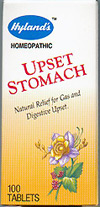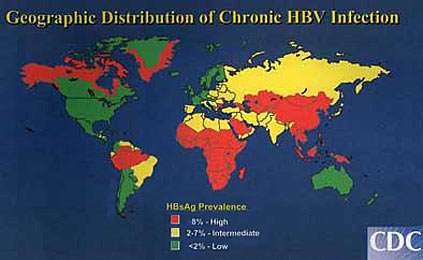The A B C's of Hepatitis |
Duncan MacDonald
Jakarta 30 October 2006
The Hepatitis Viral Alphabet, listed below, can be daunting. However while discussing details of all known varieties, we will concentrate on hepatitis B, which is endemic in Asia, and can cause death by cirrhosis or liver cancer, but is preventable.
Types of Hepatitis
• Hepatitis A (infectious hepatitis)
• Hepatitis B (serum hepatitis)
• Hepatitis C (chronic hepatitis)
• Hepatitis D (incomplete virus needing hepatitis B)
• Hepatitis E (similar to hepatitis A)
• Hepatitis F (not type A through E)
• Hepatitis G (same family of virus as type C)
They experience a low grade fever can be so mild that it can be mistaken for the flu, or very severe with the following symptoms;
• Sever loss of appetite
• Exhaustion
• Stomach upset
• Itching
• Dark urine
• Light stools (or a sudden change in stool colour)
• Aching, all combined with
• Jaundice (yellow skin and eyes)
Hepatitis A rarely causes permanent liver damage and it doesn't interfere with the liver's ability to regenerate its own tissue. For 2 or 3 weeks before symptoms emerge and 2 or 3 weeks after, the virus is present in stools and the disease is considered contagious.
Hepatitis A never persists after the acute infection, so people don't develop chronic hepatitis, cirrhosis or liver cancer. Rarely in 1 out of 1,000 cases, does the patient have severe acute hepatitis leading to liver failure and urgent need for transplantation.
In the vast majority of cases, the patient recovers completely with lifelong immunity against re-infection of HAV.
A vaccine is available for hepatitis A.
 Hepatitis B (HBV) is spread much like HIV, the virus that causes AIDS. However hepatitis B is easier to catch than HIV because it is over 100 times more concentrated in an infected person's blood and it can exist on surfaces outside the body for up to one month.
Hepatitis B (HBV) is spread much like HIV, the virus that causes AIDS. However hepatitis B is easier to catch than HIV because it is over 100 times more concentrated in an infected person's blood and it can exist on surfaces outside the body for up to one month.
How serious is hepatitis B ? Type B can cause severe liver disease including liver failure (cirrhosis) and liver cancer.
How great is my risk of getting hepatitis B infection? Hepatitis infects one out of 20 people living in the United States and one in 9 people living in Indonesia.
How do I protect myself from hepatitis B infection?
• Get the hepatitis B immunisation
• Tell your friends to get vaccinated with hepatitis B vaccine.
• Continue to practice 'safe sex'
How is hepatitis B spread?
• Living in a household with a person with ongoing hepatitis B infection
• Sharing toothbrushes, razors, nail clippers or washcloths
• Sharing needles for used for drugs, body piercing or tattooing
• Unprotected anal or vaginal sex
What are the symptoms of hepatitis B?
• Fever
• Joint pain
• Loss of appetite
• Nausea, vomiting
• Extreme tiredness
• Dark coloured urine
• Bloated and tender stomach
• Yellowish tinged skin and eyes (jaundice)
Only about half the people infected with hepatitis B get symptoms. People who are infected, whether they have symptoms or not, can spread the disease.
What are the risks of developing hepatitis B?
Your risk is higher if you:
• Are an intravenous drug user
• Live in the same house with someone who has hepatitis B infection
• Have sex with someone infected with hepatitis B
• Have sex with more than one partner
• Are a sexually active homosexual or bisexual male
• Have Tattooing and Body Piercing
• Have a job that involves contact with human blood
• Have haemophilia or need blood transfusions
• Your mother gives birth and is HBV positive
• Needle-stick accidents
• Have an organ transplant
• Travel to or live in areas where hepatitis B is common (see map below)
Note: Indonesia and Asia are considered to be endemic hepatitis B areas.
Your risk is also higher if your parents were born in Asia, Africa, the Amazon Basin in South America, the Pacific Islands or the Middle East.
How do you get hepatitis B?
 You get hepatitis B by direct contact with the blood or bodily fluids of an infected person, e.g. you can become infected by having sex or sharing needles with an infected person.
You get hepatitis B by direct contact with the blood or bodily fluids of an infected person, e.g. you can become infected by having sex or sharing needles with an infected person.
The average patient with chronic hepatitis B has a blood concentration of the virus of one billion particles per millilitre of whole blood.
That's the equivalent of 1,000,000 particles of virus in the amount of blood that would sit on the head of a small stickpin. With this concentration it's easy to see wiping or rinsing a needle in water or salt solutions won't remove all the virus particles. Indeed a large amount of virus may remain on the needle.
A concentrated solution of hydrogen peroxide will kill or inactivate the virus and cleaning needles with this solution may reduce the risk of transmission. It won't protect you however if the cleaning is superficial or if the internal chamber of the needle is not irrigated and the syringe and all its external parts are not cleansed.
A baby can get hepatitis B from an infected mother during childbirth. The period of risk occurs when the mother's and baby's blood may become intermixed.
Household Contacts / Casual Contact
People who live in close contact with those infected with hepatitis B are at risk. Household contact refers to people living in the same dwelling but who do not have sexual relations. The risk of household contacts is lower than close personal contact, but there is still risk of contamination.
Explain to family members why it's important to avoid sharing razors, nail clippers and toothbrushes. These measures are also developing good hygiene. It's also sensible to bandage any cuts or abrasions and safely dispose of menstrual pads.
Hepatitis B is not spread through food or water or by casual contact.
What is a hepatitis B carrier?
Hepatitis B carriers are people who have chronic (long term) infection with hepatitis B and never recover fully from the infection. They carry the virus and can infect others for the rest of their lives.
In the USA approx one million people carry hepatitis B virus. This figure is much higher in Asia. Approximately 6% of adults who become infected will carry HBV in their bodies for years or for life and remain contagious.
How do you know if you have hepatitis B?
You may have hepatitis B (and be spreading the disease) and not know it. Sometimes a person with hepatitis B has no symptoms at all. Only a blood test can tell for sure.

If you have symptoms:
• Your eyes or skin may turn yellow (jaundiced)
• You may loose your appetite
• You may have nausea, vomiting, fever, stomach or joint pain
• You may fell extremely tired and not be able to work for weeks or months
Is there a cure for hepatitis B?
There are medications available to treat long term (chronic) hepatitis B infection. These work for some people, but there is no cure for hepatitis B when you first get it. That is why prevention is so important. Hepatitis B vaccine is the best protection against hepatitis B. Three doses are commonly needed for complete protection.
If you are pregnant, should you worry about hepatitis B?
If you have HBV in your blood, you can give hepatitis B to your baby. Babies who get hepatitis B at birth may have the virus for the rest of their lives, can spread the disease and get cirrhosis of the liver or liver cancer.
Infants who become infected by perinatal transmission have a 90% risk of chronic infection and up to 25% will die of chronic liver disease as adults. Even when not infected during the perinatal period, children of hepatitis infected mothers remain at high risk of acquiring chronic hepatitis B infection by person-to-person (horizontal) transmission during the first 5 years of life.
More than 90% of these infections can be prevented if HBsAg-positive mothers are identified so that their infants can receive hepatitis B vaccine and hepatitis B immune globulin soon after birth.
All pregnant women should be tested for HBV early in their pregnancy. If the blood test is positive, the baby should receive vaccine along with another shot, hepatitis B immune globulin (called HBIG), at birth. The second dose of vaccine should be given at 1-2 months of age and the third dose at 6 months of age. Breast feeding Existing information suggests that hepatitis B is rarely – if ever - transmitted to an infant through breast feeding. Even though hepatitis B may be detected in breast milk, it's likely that the baby's digestive juices and enzymes would destroy the virus. The current recommendation by the American Academy of Pediatrics is that breastfeeding of a vaccinated infant poses no additional risk.

Who should get vaccinated?
• All babies at birth
• All children 0 – 18 years of age who have not been vaccinated
• Persons of any age, whose behaviour puts them at high risk for HBV infection
• Persons whose jobs expose them to human blood
Will hepatitis B vaccine protect me from hepatitis A or hepatitis C?
No !! HVA and HCA are different diseases caused by different viruses. There is a vaccine for hepatitis A. There is no vaccine for hepatitis C.
Does hepatitis B vaccine have any side effects or adverse reactions?
Hepatitis B vaccines have been shown to be safe when administered to both children and adults. The only side effects associated with the vaccination is (i) pain at the injection site (3%-29%) and (ii) a temperature greater than 37.7ºC (1%-6%). In placebo-controlled studies, these side effects were reported no more frequently among vaccines than among persons receiving a placebo.
Get vaccinated – hepatitis B is preventable!
However, unlike hepatitis B, it appears to be poorly transmitted by sexual contact and is infrequently passed (6%) from an otherwise healthy mother to her newborn.
Today hepatitis C is the leading indication for liver transplant. Twenty to forty percent of patient waiting liver transplants have hepatitis C.
HCV infection occurs among persons of all ages but the highest incidence is found among males aged between 20 to 39.
Risk factors for hepatitis C include
• Injecting-drug use – by far the highest risk
• Blood transfusions
• Employment in patient care or clinical laboratory work
• Exposure to a sex partner who has a history of hepatitis
Transmission of hepatitis C within a household is uncommon.
Risk factors are the same as for hepatitis B and transmission is also by blood and blood-derived body fluids.
Hepatitis B patients co-infected with delta have a greater risk of developing fulminant hepatitis (a sudden severe attack), more severe chronic hepatitis and increased progression to cirrhosis.
Transmitted primarily by faecal-oral route and faecally contaminated drinking water. Person to person transmission of HEV appears to be uncommon. Currently no vaccine or specific medical therapy exists.

 Heart Attack
Kidney Cyst
Heart Attack
Kidney Cyst
Types of Hepatitis

• Hepatitis A (infectious hepatitis)
• Hepatitis B (serum hepatitis)
• Hepatitis C (chronic hepatitis)
• Hepatitis D (incomplete virus needing hepatitis B)
• Hepatitis E (similar to hepatitis A)
• Hepatitis F (not type A through E)
• Hepatitis G (same family of virus as type C)
Hepatitis A
Outbreaks of this virus (HAV) occur because of poor hygiene; a contaminated water supply or inadequate hand washing. People who contract hepatitis A typically develop flu like symptoms within 10 to 40 days of exposure (the acute stage).They experience a low grade fever can be so mild that it can be mistaken for the flu, or very severe with the following symptoms;

• Sever loss of appetite
• Exhaustion
• Stomach upset
• Itching
• Dark urine
• Light stools (or a sudden change in stool colour)
• Aching, all combined with
• Jaundice (yellow skin and eyes)
Hepatitis A rarely causes permanent liver damage and it doesn't interfere with the liver's ability to regenerate its own tissue. For 2 or 3 weeks before symptoms emerge and 2 or 3 weeks after, the virus is present in stools and the disease is considered contagious.
Hepatitis A never persists after the acute infection, so people don't develop chronic hepatitis, cirrhosis or liver cancer. Rarely in 1 out of 1,000 cases, does the patient have severe acute hepatitis leading to liver failure and urgent need for transplantation.
In the vast majority of cases, the patient recovers completely with lifelong immunity against re-infection of HAV.
A vaccine is available for hepatitis A.
Hepatitis B - 100 times easier to catch than HIV
 Hepatitis B (HBV) is spread much like HIV, the virus that causes AIDS. However hepatitis B is easier to catch than HIV because it is over 100 times more concentrated in an infected person's blood and it can exist on surfaces outside the body for up to one month.
Hepatitis B (HBV) is spread much like HIV, the virus that causes AIDS. However hepatitis B is easier to catch than HIV because it is over 100 times more concentrated in an infected person's blood and it can exist on surfaces outside the body for up to one month.How serious is hepatitis B ? Type B can cause severe liver disease including liver failure (cirrhosis) and liver cancer.
How great is my risk of getting hepatitis B infection? Hepatitis infects one out of 20 people living in the United States and one in 9 people living in Indonesia.
How do I protect myself from hepatitis B infection?
• Get the hepatitis B immunisation
• Tell your friends to get vaccinated with hepatitis B vaccine.
• Continue to practice 'safe sex'
How is hepatitis B spread?
• Living in a household with a person with ongoing hepatitis B infection
• Sharing toothbrushes, razors, nail clippers or washcloths
• Sharing needles for used for drugs, body piercing or tattooing
• Unprotected anal or vaginal sex
What are the symptoms of hepatitis B?
• Fever

• Joint pain
• Loss of appetite
• Nausea, vomiting
• Extreme tiredness
• Dark coloured urine
• Bloated and tender stomach
• Yellowish tinged skin and eyes (jaundice)
Only about half the people infected with hepatitis B get symptoms. People who are infected, whether they have symptoms or not, can spread the disease.
What are the risks of developing hepatitis B?
Your risk is higher if you:
• Are an intravenous drug user
• Live in the same house with someone who has hepatitis B infection

• Have sex with someone infected with hepatitis B
• Have sex with more than one partner
• Are a sexually active homosexual or bisexual male
• Have Tattooing and Body Piercing
• Have a job that involves contact with human blood
• Have haemophilia or need blood transfusions
• Your mother gives birth and is HBV positive
• Needle-stick accidents
• Have an organ transplant
• Travel to or live in areas where hepatitis B is common (see map below)
Note: Indonesia and Asia are considered to be endemic hepatitis B areas.
Your risk is also higher if your parents were born in Asia, Africa, the Amazon Basin in South America, the Pacific Islands or the Middle East.
How do you get hepatitis B?
 You get hepatitis B by direct contact with the blood or bodily fluids of an infected person, e.g. you can become infected by having sex or sharing needles with an infected person.
You get hepatitis B by direct contact with the blood or bodily fluids of an infected person, e.g. you can become infected by having sex or sharing needles with an infected person. The average patient with chronic hepatitis B has a blood concentration of the virus of one billion particles per millilitre of whole blood.
That's the equivalent of 1,000,000 particles of virus in the amount of blood that would sit on the head of a small stickpin. With this concentration it's easy to see wiping or rinsing a needle in water or salt solutions won't remove all the virus particles. Indeed a large amount of virus may remain on the needle.
A concentrated solution of hydrogen peroxide will kill or inactivate the virus and cleaning needles with this solution may reduce the risk of transmission. It won't protect you however if the cleaning is superficial or if the internal chamber of the needle is not irrigated and the syringe and all its external parts are not cleansed.
A baby can get hepatitis B from an infected mother during childbirth. The period of risk occurs when the mother's and baby's blood may become intermixed.
Household Contacts / Casual Contact

People who live in close contact with those infected with hepatitis B are at risk. Household contact refers to people living in the same dwelling but who do not have sexual relations. The risk of household contacts is lower than close personal contact, but there is still risk of contamination.
Explain to family members why it's important to avoid sharing razors, nail clippers and toothbrushes. These measures are also developing good hygiene. It's also sensible to bandage any cuts or abrasions and safely dispose of menstrual pads.
Hepatitis B is not spread through food or water or by casual contact.
What is a hepatitis B carrier?
Hepatitis B carriers are people who have chronic (long term) infection with hepatitis B and never recover fully from the infection. They carry the virus and can infect others for the rest of their lives.
In the USA approx one million people carry hepatitis B virus. This figure is much higher in Asia. Approximately 6% of adults who become infected will carry HBV in their bodies for years or for life and remain contagious.
How do you know if you have hepatitis B?
You may have hepatitis B (and be spreading the disease) and not know it. Sometimes a person with hepatitis B has no symptoms at all. Only a blood test can tell for sure.

If you have symptoms:
• Your eyes or skin may turn yellow (jaundiced)
• You may loose your appetite
• You may have nausea, vomiting, fever, stomach or joint pain
• You may fell extremely tired and not be able to work for weeks or months
Is there a cure for hepatitis B?
There are medications available to treat long term (chronic) hepatitis B infection. These work for some people, but there is no cure for hepatitis B when you first get it. That is why prevention is so important. Hepatitis B vaccine is the best protection against hepatitis B. Three doses are commonly needed for complete protection.
If you are pregnant, should you worry about hepatitis B?
If you have HBV in your blood, you can give hepatitis B to your baby. Babies who get hepatitis B at birth may have the virus for the rest of their lives, can spread the disease and get cirrhosis of the liver or liver cancer.

Infants who become infected by perinatal transmission have a 90% risk of chronic infection and up to 25% will die of chronic liver disease as adults. Even when not infected during the perinatal period, children of hepatitis infected mothers remain at high risk of acquiring chronic hepatitis B infection by person-to-person (horizontal) transmission during the first 5 years of life.
More than 90% of these infections can be prevented if HBsAg-positive mothers are identified so that their infants can receive hepatitis B vaccine and hepatitis B immune globulin soon after birth.
All pregnant women should be tested for HBV early in their pregnancy. If the blood test is positive, the baby should receive vaccine along with another shot, hepatitis B immune globulin (called HBIG), at birth. The second dose of vaccine should be given at 1-2 months of age and the third dose at 6 months of age. Breast feeding Existing information suggests that hepatitis B is rarely – if ever - transmitted to an infant through breast feeding. Even though hepatitis B may be detected in breast milk, it's likely that the baby's digestive juices and enzymes would destroy the virus. The current recommendation by the American Academy of Pediatrics is that breastfeeding of a vaccinated infant poses no additional risk.

Who should get vaccinated?
• All babies at birth
• All children 0 – 18 years of age who have not been vaccinated
• Persons of any age, whose behaviour puts them at high risk for HBV infection
• Persons whose jobs expose them to human blood
Will hepatitis B vaccine protect me from hepatitis A or hepatitis C?
No !! HVA and HCA are different diseases caused by different viruses. There is a vaccine for hepatitis A. There is no vaccine for hepatitis C.
Does hepatitis B vaccine have any side effects or adverse reactions?
Hepatitis B vaccines have been shown to be safe when administered to both children and adults. The only side effects associated with the vaccination is (i) pain at the injection site (3%-29%) and (ii) a temperature greater than 37.7ºC (1%-6%). In placebo-controlled studies, these side effects were reported no more frequently among vaccines than among persons receiving a placebo.
Get vaccinated – hepatitis B is preventable!
Hepatitis C
An estimated 3.9 million Americans have hepatitis C (HCV). It is the most prevalent form of chronic hepatitis in the USA accounting for 20% to 25% of all hepatitis cases. The infection is transmitted by blood, like hepatitis B.However, unlike hepatitis B, it appears to be poorly transmitted by sexual contact and is infrequently passed (6%) from an otherwise healthy mother to her newborn.
Today hepatitis C is the leading indication for liver transplant. Twenty to forty percent of patient waiting liver transplants have hepatitis C.
HCV infection occurs among persons of all ages but the highest incidence is found among males aged between 20 to 39.
Risk factors for hepatitis C include

• Injecting-drug use – by far the highest risk
• Blood transfusions
• Employment in patient care or clinical laboratory work
• Exposure to a sex partner who has a history of hepatitis
Transmission of hepatitis C within a household is uncommon.
Hepatitis D or Delta hepatitis
A newly discovered form that exists only in conjunction with hepatitis B. It tends to make the symptoms worse.Risk factors are the same as for hepatitis B and transmission is also by blood and blood-derived body fluids.
Hepatitis B patients co-infected with delta have a greater risk of developing fulminant hepatitis (a sudden severe attack), more severe chronic hepatitis and increased progression to cirrhosis.
Hepatitis E
Symptoms are the same as hepatitis A but cases appear to be mainly imported from Central America, Mexico and the Indian subcontinent of Asia. There are no recorded cases in Indonesia to date.Transmitted primarily by faecal-oral route and faecally contaminated drinking water. Person to person transmission of HEV appears to be uncommon. Currently no vaccine or specific medical therapy exists.
Conclusion
Hepatitis B is endemic in Asia and Indonesia. It can cause cirrhosis and liver cancer. It can be prevented with appropriate vaccinations. The complete course of primary hepatitis B vaccination consists of 3 injections at intervals of one month.
This Digest article can be downloaded as a FREE e-book on Smashwords.
Available on iPad / iBooks, Kindle, Nook, Sony, & most e-reading apps including Stanza & Aldiko.
Just click the following link
>> download free e-book dMAC Digest





